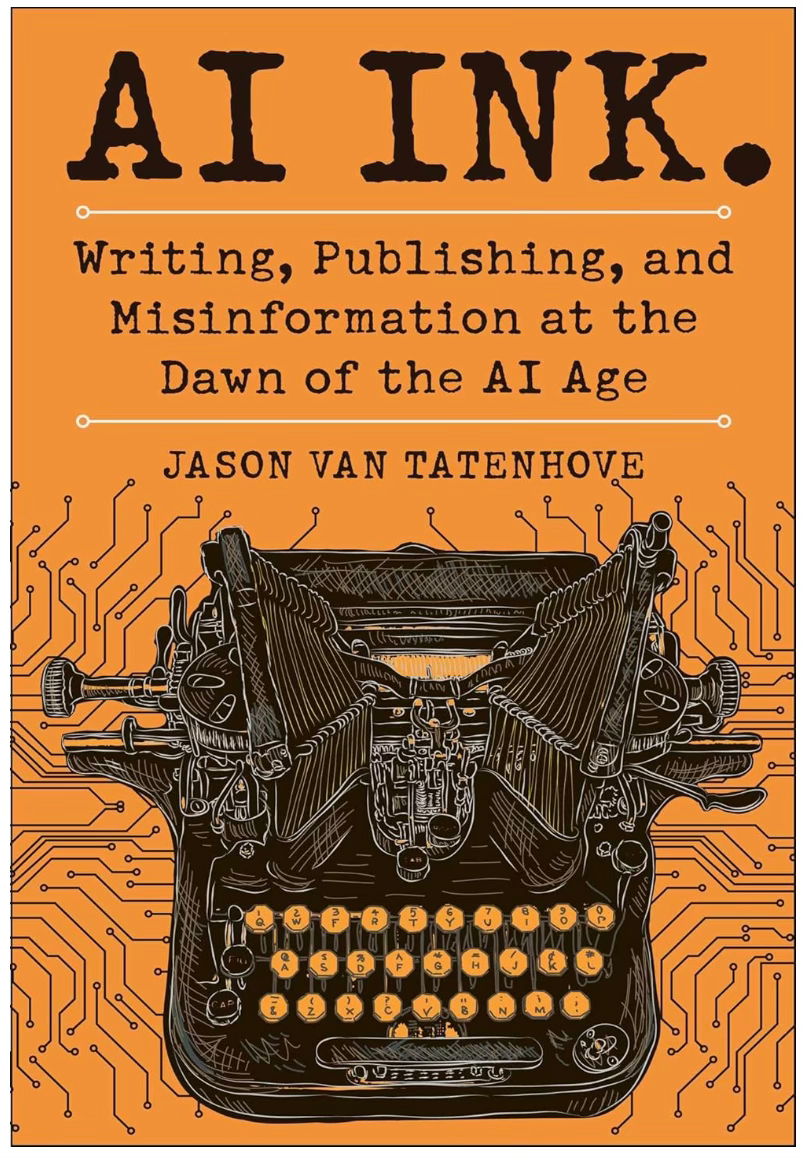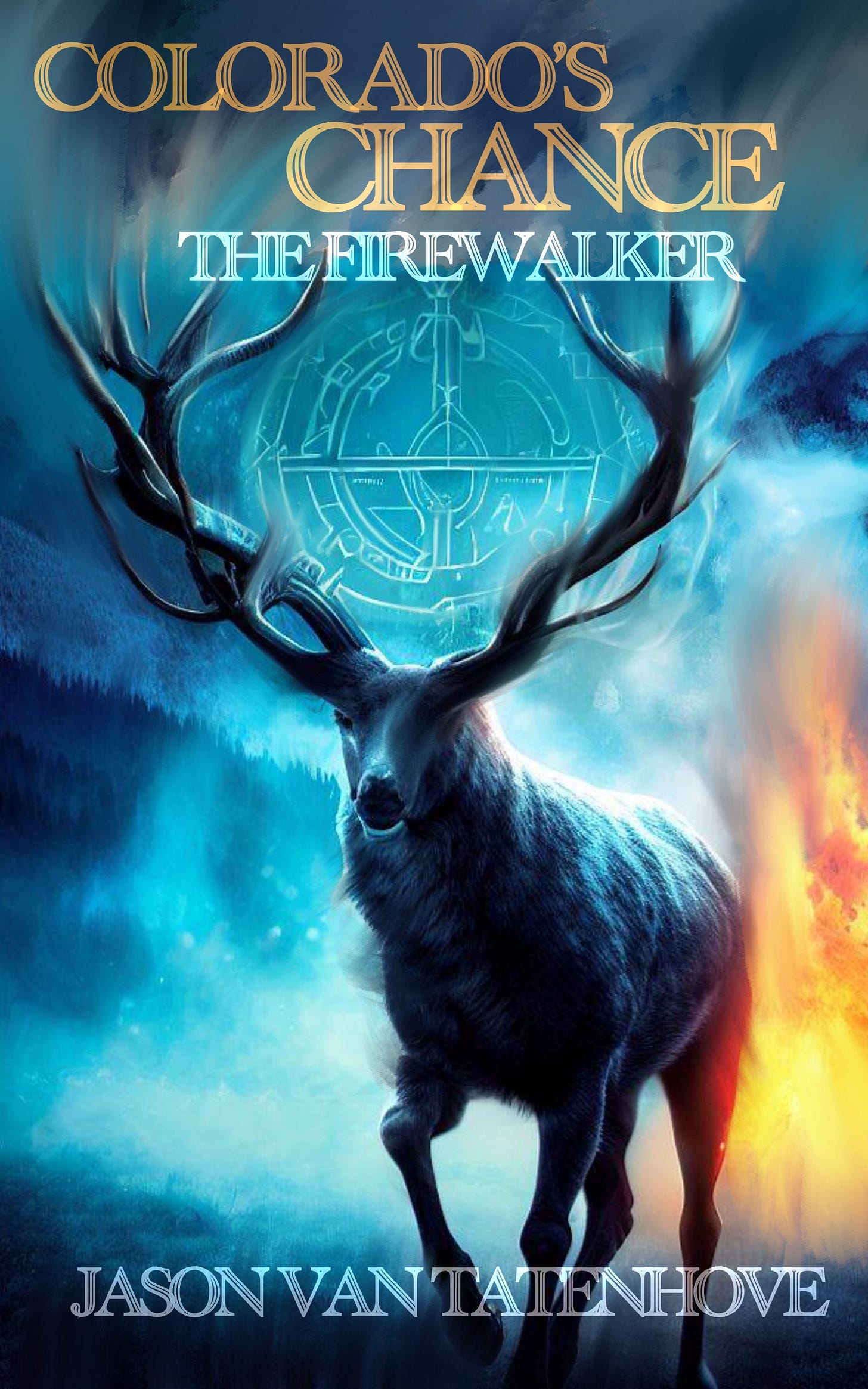They Knew - Intro and Chapter 1
A near-future thriller about AI, rebellion, and the cost of knowing too much.
Writers have always served as society’s mirrors, capturing the fears, anxieties, and upheavals of their time. In moments of great political and cultural unrest, storytelling becomes both a tool and a responsibility—one that often comes at a cost. History tells us that those who challenge power through their words can become targets themselves. But even in the face of danger, we must continue to write. We must tell stories that cut to the emotional core of our era, that acknowledge the hurt, the outrage, and the hope that still lingers.
There is no doubt that we are living through a historic and deeply unsettling time in America. We have watched the foundations of our democracy shaken, institutions compromised, and those once tasked with holding power to account reduced to obedient lapdogs, wagging the American tail faster than anyone could have imagined.
I no longer consume mainstream media—it has been bought, sold, and compromised. I encourage you to do the same. I have also left social media, a machine built to exploit human dignity for profit. I urge you to consider doing the same. We must stop feeding the billionaire beasts whose unchecked power our complacency has nurtured.
As many of you know, I have stepped away from journalism and political nonfiction. Not because the fight isn’t worth having, but because I no longer believe the pillars of journalism stand as they once did. I refuse to be part of a system that no longer protects the truth. But that doesn’t mean I have stopped writing. Writing is the one thing in this chaotic world that I can control. It is how I process, resist, and document. And I have chosen to do so through fiction—fiction that eerily resembles the world we are living in now.
The publishing industry, much like journalism, is in upheaval. Writers everywhere are scrambling to find new ways to share their work and reach readers. In response, I am taking a different path.
What is They Knew?
They Knew is my newest novel—one I have been pouring everything into daily as the world unfolds into this new nightmare. It is the culmination of years spent honing my craft, improving my storytelling, and dedicating myself to the literary arts. This is what happens when a journalist who no longer trusts the system turns to fiction to make sense of it all.
To ensure this story reaches people in real time, I have decided to serialize They Knew here on Colorado Switchblade.
Each week, I will release a new chapter (approximately 2,000 words), accompanied by a hand-drawn illustration. These chapters will be available immediately to paid subscribers and will remain paywalled for two weeks before being unlocked for all readers—because while I believe in valuing my work, I also believe that everyone should have access to stories, especially in times like these.
Paid members will also have the opportunity to comment, engage, and offer feedback as the story progresses—helping shape the discussion around the themes within They Knew.
I have also created a dedicated section within Colorado Switchblade for this serialized release, so you can always go back and catch up.
What Happens If the Novel Gets Picked Up?
If They Knew is acquired by a major publisher, I may be required to remove the serialized chapters. In that case, subscribers will have to wait for the official book release. But until that happens, this story will unfold here, week by week, shaped by the world we are witnessing in real-time.
This Project Needs You—Help Spread the Word
If this story resonates with you, if you see yourself in its pages, if you feel the weight of this moment in history pressing down like I do—then I need your help.
They Knew is more than just a book. It’s a reflection of everything we are going through. It is a way to process, to fight, and to remember that we are not alone. But to truly make an impact, this project needs readers. It needs people willing to help amplify it.
So I’m asking—no, I’m begging—please share this with your friends, your family, your community.
Email it to someone who needs to hear these words.
Post it in the few remaining online spaces that still allow meaningful discourse.
Tell people about it over coffee, at work, or during late-night conversations when the weight of everything feels unbearable.
Because if this story connects with you, then chances are, it will connect with someone else, too.
Expanding Into Graphic Novels
In addition to They Knew, I am beginning to explore another storytelling medium—graphic novels. I plan to adapt some of my other storylines into web-based graphic narratives, and possibly, in time, They Knew itself. This is a long-term goal, and it will take time to rebuild my artistic practice, but I believe graphic storytelling has the potential to reach new audiences in ways traditional prose cannot.
A New Focus: Fiction as Resistance
While I will still occasionally cover critical local news, my primary focus from now on will be fiction. Because, in many ways, fiction allows for a deeper truth. It has the power to connect us in ways that journalism no longer can. Through They Knew, I hope to remind people that they are not alone in their dread, their pain, or their struggle to hold onto hope.
This is where my voice will be. This is where the fight continues.
But I can’t do it alone.
So please—read. Share. Talk about it.
Together, we write our way through the dark.
~ JVT
They Knew
By Jason Van Tatenhove
Chapter 1
The coffee maker sputtered its last gasp, filling the apartment with the bitter smell of burnt grounds. Raven Marlowe didn’t move. She stayed hunched in her rolling desk chair, chin on her knee, staring through the bay window at the trembling aspen tree outside. Golden leaves danced in the sunlight, oblivious to the fact that her world was crumbling.
Her jaw clenched again, bringing back that familiar overused muscle pain. She rubbed the sides of her jaw, trying to relax the knots on either side. Today should have been overcast—dark, ominous, the kind of day that fit the decision she had to make. The air should have been thick with mist, not the crisp chill of autumn, and the sky should have mirrored the knot twisting in her gut. But no, nature had decided to rub it in. She absentmindedly started to trace the doodled lines of computer code that spiraled across the top of the desk she sat in front of—she always seemed to draw these lines of "doodlecode," as she playfully referred to the drawings she compulsively made when lost in her head.
Today, Raven would walk into the lab she loved, look her professor in the eye, and tell him she was giving up.
Her gaze drifted back to the window. The sunlight reflected off the leaves in brilliant, golden streaks, like a painter’s brushstrokes defying the somber truth of the moment. Today she had to walk into the place she loved, the university she’d called home since she was sixteen, and tell her professor—the man who had been her mentor and advocate for years—that she was dropping out.
She pressed her hands flat against the desk, grounding herself. She couldn’t think about what came after, couldn’t let the weight of it crush her before she even began.
The man who had welcomed her into the program when she was just a teenager, who had come to her house when her mother died to sit with her grieving father, would understand. He had to.
But the idea of walking into that lab, into the world of algorithms and breakthroughs she had poured herself into, and tearing herself away from it forever… it felt like a death of its own.
The coffee maker sputtered again, releasing its last stream of rich, dark liquid into the pot. Raven walked into the kitchen and poured herself a mug, cradling it between her hands, softly breathing in the beloved aroma and savoring the feelings and memories of better mornings it brought with it. The mug’s warmth seeped into her palms, but couldn’t touch the chill in her chest.
She took a deep breath and let it out slowly, staring at the steam curling from the cup. Today wasn’t just about her dreams—it was about the man behind that door down the hall. who had given everything to and then sacrificed everything for her. Returning the favor was the least she could do, but that sense of duty didn’t make the reality any easier. She had to wake her father—once a giant of strength and brilliance in her eyes—and clean that stinking, repulsive, most personal of messes his illness left smeared and burning across his lower half. No one else would help.
Her father had given up everything for her—a career, a future, a place among the greats. And now, it was her turn to give up everything for him.
A knock rattled the front door, startling her. Visitors were rare these days. Setting her coffee down, she opened the door cautiously.
Standing there was Caleb Winslow, his sandy blond hair tousled by the breeze, his glasses slipping down his nose. He balanced a laptop bag over one shoulder and held a coffee cup in his hand. “Hey,” he said, his easy smile faltering when he saw her face. “Bad time?”
Raven blinked, caught between the pull of her heavy thoughts and the surprise of seeing him. “Caleb? Yeah, it actually kind of is. What are you doing here?”
“I was in the neighborhood,” he said, his smile returning. “Thought I’d check in.” He held up the coffee cup, the logo of a local café scrawled across the side. “Bribery. Figured you might need it.”
She almost laughed but stopped herself. “You don’t have to—”
“I wanted to.” He paused, his gaze flicking toward the closed door at the end of the hall. His smile softened, as if he wanted to say more but thought better of it. “How’s your dad?”
Her throat tightened. “Not great… I need to handle things before I head to the lab. But listen, I do need to talk to you later. Will you be around?”
Caleb’s grin returned with a hint of his usual drama club flair. “For you? Always.” He swept his hand theatrically. “Whatever you need.”
His grin was disarming, and for a moment, it worked. A small smile tugged at the corner of her mouth as she imagined a world where she wasn’t carrying everything alone. Where she could let him in—not just through the door, but into her life.
It was a dangerous thought, letting him in. A risk she couldn’t afford to take now.
Her father’s groan shattered the fragile moment, dragging her back. It cut through the air like a jagged blade, sharp and raw, pulling her into the dark reality waiting down the hallway. The melody of her childhood had twisted into something unrecognizable—raw, guttural, filled with pain.
Raven’s smile vanished, her shoulders stiffening, jaw tightening against the wave of emotion threatening to surface. The sour scent of sickness and the faint hum of machines seemed heavier now, closing in around her.
“I have to go,” she said, her voice steeling itself for what lay ahead.
Without waiting for his reply, she closed the door, bracing herself for the task ahead. Her father had given up everything for her—his dreams, health, and future. It was her turn to sacrifice, and she would do it for the same reason: love.





